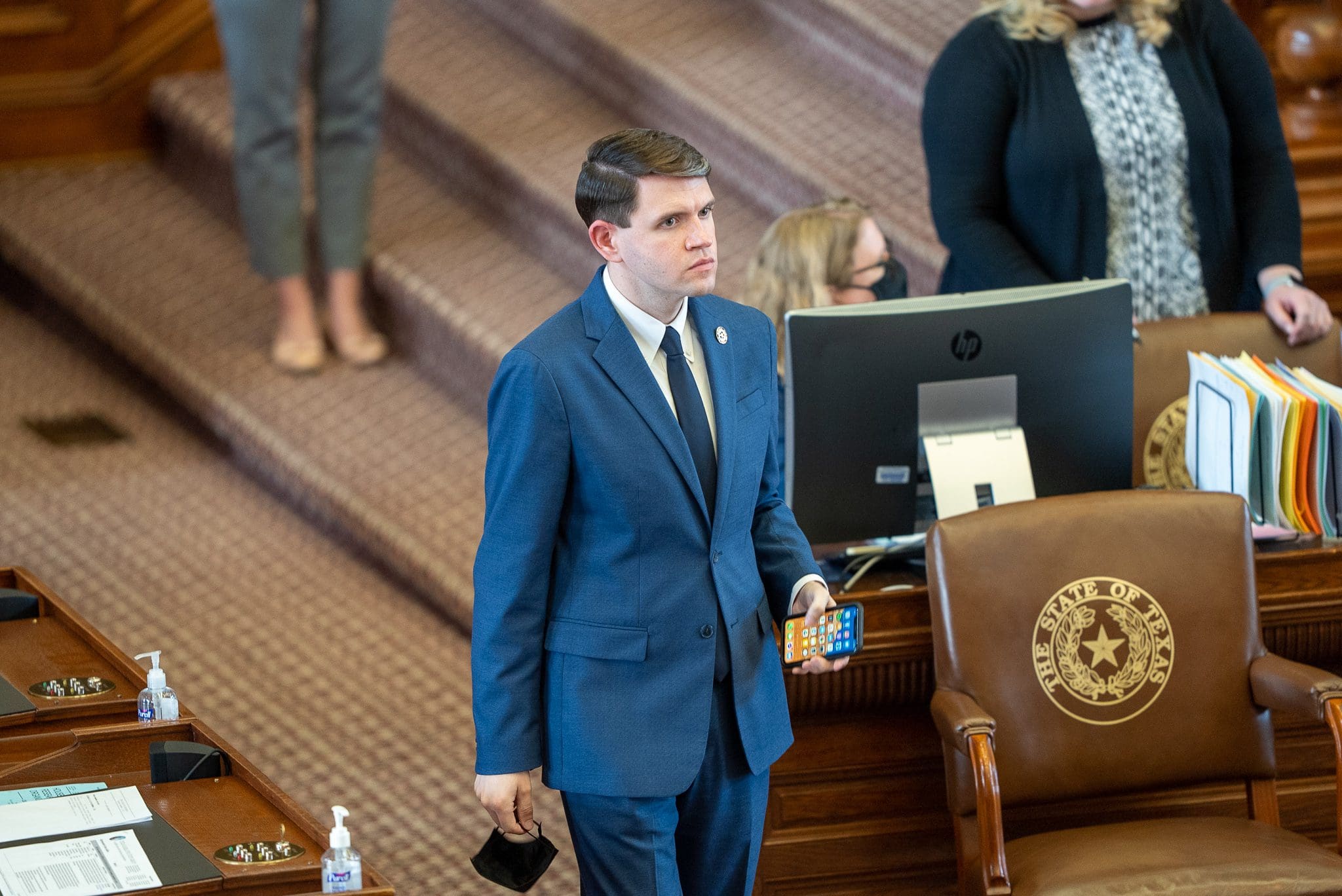AUSTIN — Forget reading, writing, or math.
Democrat State Rep. James Talarico (Austin), a former school teacher, shared his priority school subject at a meeting of the Texas House Public Education Committee in the State Capitol earlier this week.
He was conversing from the dais with invited speaker Lori Kuykendall (president of Beacon Health Education Resources) about sex education in public schools, discussing recent state laws that require school districts to be more transparent with parents—such as disclosing human sexuality curricula and obtaining parents’ written permission before teaching it to students.
Talarico disagreed with these new laws.
“A second major change that came in House Bill 1525 is that all sex education became what we call ‘opt-in,’ where written parent permission is now required for all students to participate,” began Kuykendall, who has worked with sex education in Texas schools since 1995. “Previously, the law had been an ‘opt-out’ law. Senate Bill 9 came afterward … and added four sensitive topics to all of these regulations: child abuse, family violence, dating violence, and sex trafficking.”
“Do we know what the impact has been?” Talarico asked. “Are districts getting, you know, almost, hopefully, near-unanimous consent for students to learn about maybe the most important topic that they’ll learn about in school?”
Kuykendall said “yes and no” because the data is limited so far. She explained that districts have logistical challenges with obtaining written permission, but that it’s important to “chang[e] a framework around communication and increas[e] transparency and parent involvement,” especially for such a controversial and sensitive topic as sex.
“It certainly sounds like a challenge,” Talarico replied. “It certainly sounds like it’ll decrease the amount of students receiving this critical instruction. And do we know, at least among health educators and among experts in this area, why sexuality would be the part of the [Texas Essential Knowledge and Skills] that we would make ‘opt-in’ instead of ‘opt-out’?”
“Well, I think that there’s going to be a given diversity of values around this particular sensitive subject,” Kuykendall said, giving an example of a large school district that sent out permission forms to parents and saw 78 percent opt-in.
“Those sound like high percentages, but still it’s a quarter of students not learning about … sex-ed,” Talarico replied. He then compared teaching current sex-ed curricula—many of which, as Texas Scorecard has documented, promote hazardous LGBT sexual behaviors and activity to children—with teaching the theory of evolution, deriding those who disagree.
“And so, my concern is that maybe the theory of evolution will be opt-in, right? Because we have a large segment of the population that has a problem with the theory of evolution … a personal belief that maybe conflicts with what we all agree should be taught in public schools,” Talarico said.
Kuykendall expressed her concern that school districts are increasingly teaching sex-ed curricula that violate state law and mentioned that they soon won’t need parental permission. The written parental consent requirement, recently enacted in 2021, is set to expire in 2024. (But the Republican-controlled state Legislature, who wrote it that way, can choose to extend the requirement or make it permanent).
Public school curricula and materials have been an especially contentious topic in Texas over the last two years, as COVID shutdowns enabled parents to learn more about what was actually happening in their children’s classrooms. Texas Scorecard has chronicled the ongoing issue.
Over the next few months and into the 2023 Texas legislative session, state lawmakers will be making decisions on important education policies for the statewide public school system. Concerned citizens may contact their state representative, senator, and Gov. Abbott.





